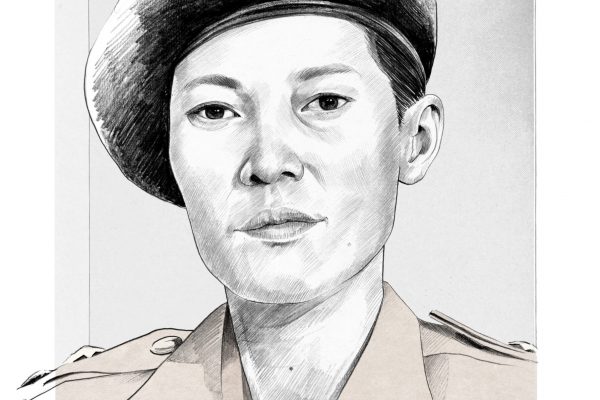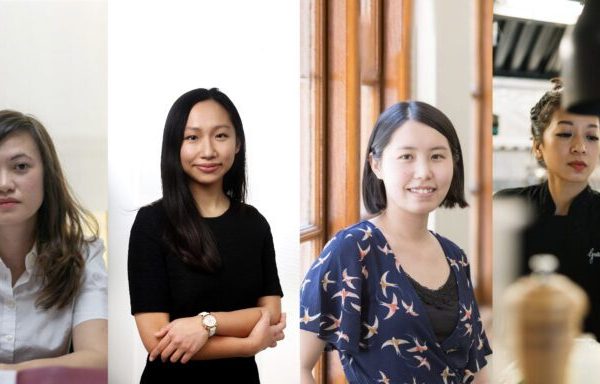Local Voices: Discussing sexual violence and harassment in Hong Kong and Macao
Carly Pun*, a victim of sexual assault, experienced first-hand how culture can normalise harassment:
“On a trip to Kyoto, I was entering my rental apartment one evening when a young man pushed me against the door, squeezed my breasts and ran away. I felt angry, hopeless and vulnerable, like there was nothing I could do.
“I was told that sexual assault or harassment is common in Japan and not to be too upset about it. I think that mentality is wrong, because that discourages victims from reporting their cases. But what could I do? I just let it go.
“When I returned to Hong Kong, my friends didn’t react much to this incident. They just casually commented that there are many creepy guys in Japan and tried to show some sympathy, before changing the subject.
“I don’t think they realise how traumatising it was. We all assume that when things like this happen in another country, you shouldn’t make a big fuss about it. They think it is a ‘funny story’ instead of something that we should take seriously.”
A stressful system
Ramon Yuen, a member of the Sham Shui Po District Council, says we need better legislation and a more sensitive process:
“A serious issue is the legal process that victims have to go through. It’s very long and can be embarrassing or traumatising. Many victims withdraw charges because they can’t bear the social stress.
“A lot of private enterprises and NGOs still don’t have a complete system to handle sensitive cases. We need to fix that as a society, so more victims are encouraged to come forward.
“I’d also like to see the government take a more proactive role in providing services, such as hotlines so victims can seek support from psychologists and social workers. In LegCo, we also need to have more discussions and advance legislation.”
The big picture
A lawyer at Daly & Associates, Karen McClellan says employers are increasingly adopting sexual harassment policies but that’s only half the battle:
“Awareness about sexual harassment has improved. More victims are willing to come forward, and we’ve seen more employers in Hong Kong adopting anti-harassment policies and procedures.
“That’s a good thing but may not get to the root of the problem if there has been a long-standing culture of sexism or discrimination in the workplace. Employers should support women’s advancement in the workplace while simultaneously addressing inequalities, discrimination and harassment.”
Open to interpretation
Professor King Lau Chow, Gender Equity Officer at the Hong Kong University of Science and Technology, says ambiguous definitions lead to subjectivity:
“There’s no hard definition of sexual harassment – no clearly defined words or gestures. At the end of the day, deciding whether an incident can be pursued depends on witnesses and our own judgment.
“He-said, she-said situations are very common. In fact, a majority of cases at the university turn out to be misunderstandings. The cases that we determine to be sexual harassment – roughly two or three out of 10 cases – see perpetrators suspended from school or prohibited from joining certain classes, in order to separate them from the victim.”
Young voice
Iris Lee, a 17-year-old student in Hong Kong, believes that her peers don’t take sexual harassment seriously enough:
“In general, a lot of students kid around about sexual harassment. If one student touches another in a joking fashion, they will say something like: ‘Oh, you are raping me! Consent!’ Then everyone laughs. They are devaluing a very real issue by making a joke out of it.
“I wish our school would place a greater emphasis on the issue of consent. Currently, they devote just one hour throughout our entire high school curriculum to this issue – it was over lunch during sophomore year. In that hour, the instructors informed us about the nuances of what constitutes consent and what doesn’t. However, education isn’t effective unless the students recognise the gravity of what is being taught.
“In my family, we never discuss the topic of sex directly – I just know implicitly that my mum worries about sexual harassment, because she always tells me to be careful. She only lets me go hiking with a big group; expresses concern if I go to sleepovers and my friend has an older brother; and prefers that I don’t take taxis alone. If anything ever happens, she told me to scream as loud as I can.”
Waiting on justice
Kate Tang, who says she was molested multiple times by her piano teacher in 2011, brought the #MeToo movement to Macao in 2018 when she shared her experience on Facebook. The 20-year-old explains why she waited to go public:
“When I was younger, I didn’t know how to handle the situation and my parents didn’t want to report the crime. They just told me to avoid him.
I knew that other students had similar experiences, but none of our parents had been willing to report it.
“In 2018, I read in the newspaper that the same piano teacher was arrested for sexual abuse of children, so that’s when I decided to share my experience on Facebook. Soon after, I reached out to the judiciary police who took my statement.
“However, I think I can only serve as a witness and provide character evidence because my case happened too long ago. So far, the response has been generally positive. But, of course, some people still question why I came forward after so many years.”
On speaking up
Ada Wong*, who was allegedly molested by a family friend for years as a teenager, says a lack of awareness in Macao discourages victims from coming forward:
“I was unable to fully comprehend what was happening to me when I was young. When I grew older, I started talking about it with friends. Even though most people in Macao are well educated, they still don’t understand sexual harassment or assault, and very few realise it can happen between friends and relatives. Some of them might even ask questions that unintentionally hurt my feelings, for instance: Why didn’t you run away?
“The low level of awareness, combined with Macao being such a close-knit society, makes it very difficult for victims to come forward. Still today, I cannot gather the courage to report the assaults. I don’t want to go through the complicated legal procedures. More importantly, I am worried about how my relatives would react as well as how my actions could destroy the man’s family. I am not sure I can bear the consequences.”
Invisible trauma
Icy Kam is a member of the Concern Group of Sex Crimes, a social group that pushes for reforms in Macao. She shares her observations on the gaming industry:
“The growing gaming industry has given rise to prostitution, gambling, drug abuse and, in some cases, a twisted sense of morality. We have been told by many gaming employees that verbal sexual harassment by guests or colleagues is very common. But they all believe that, since they work in a casino, this behaviour is to be expected.
“And because the casino industry is so dominant in Macao, this gradually fosters a perception in society that making dirty jokes or even being touched inappropriately is not a big deal because it doesn’t cause physical injury. Such a perception neglects the mental trauma caused by sexual harassment. Although a victim’s trauma is invisible on the surface, the psychological impact can be long-lasting.”
#MeToo in Macao
A Facebook group run by anonymous commentators, Abbot Macau explains why Macao hasn’t seen a more widespread #MeToo movement:
“The #MeToo movement has become distorted – now it’s become a means to destroy someone on a social level or used by feminist organisations to create hype for their agenda. It is creating a false notion that men only see women as sexual objects.
“In the context of Macao, specifically, #MeToo has not seen momentum for a few reasons: First, women here have higher social status because of good career opportunities in the service industry. In addition, Macao people are often passive when it comes to standing up for their rights – they worry about the impact on their lives.
“On the other hand, many social leaders and lawmakers who claim to represent these victims don’t actually push for social justice issues in general, let alone the problem of sexual assault, because they are controlled by the government.”
Young voice
Sixteen-year-old student Alexis Tagliabue believes that Macao should hold educational campaigns to shed light on sexual harassment:
“I heard about the #MeToo Movement from close friends and schoolmates, but in general, most of my peers aren’t too knowledgeable about sexual harassment. I’d like to see more education through campaigns and advertisements – TV commercials, public buses, taxis… It would help to feature actors and notable celebrities so the message will reach more people.
“I’d also like to see multilingual commercials – in English, Portuguese, and Chinese – that empower victims. Sometimes victims are too scared to stand up and ask for help, so I hope with more support, they will feel more empowered to come forward.”
*Names have been changed at the request of the victims.

